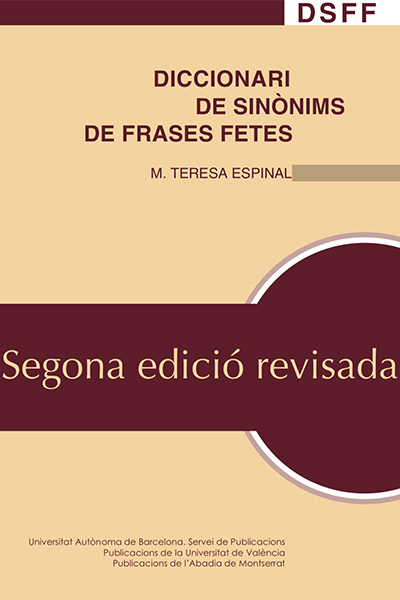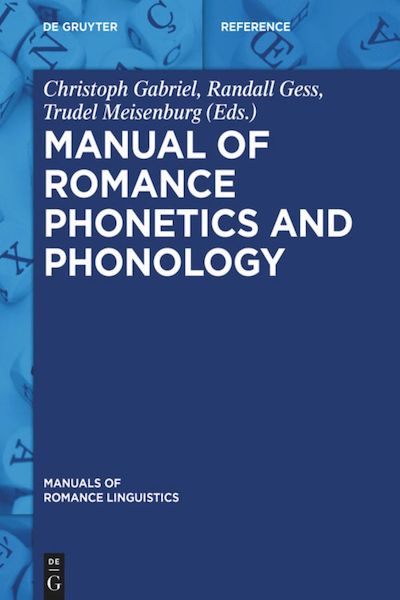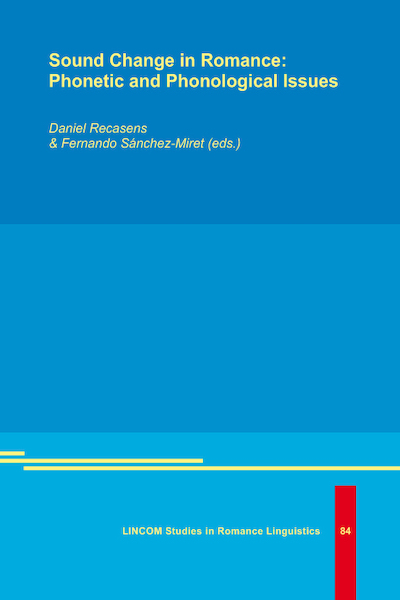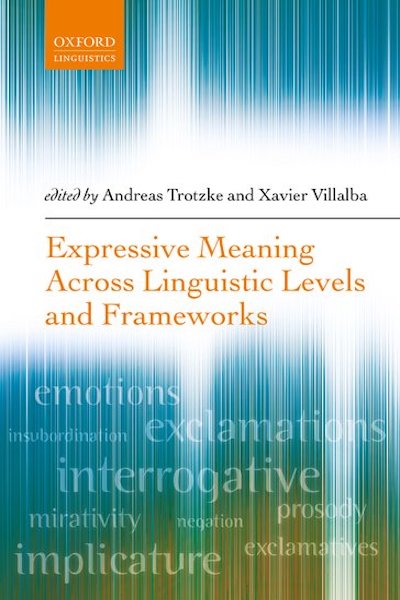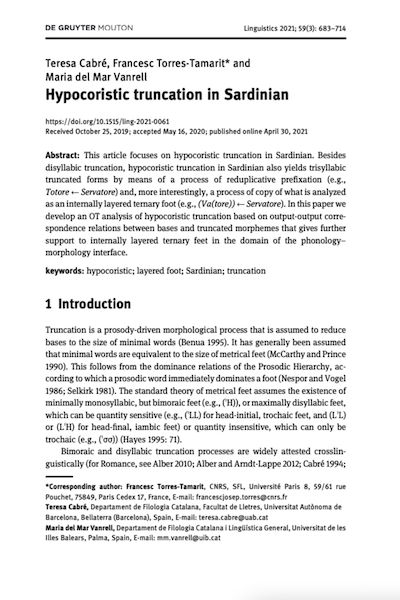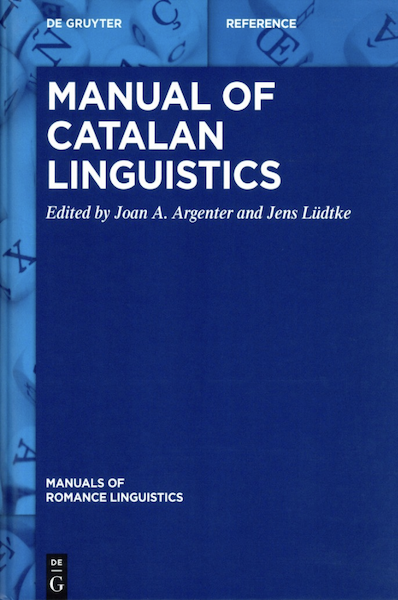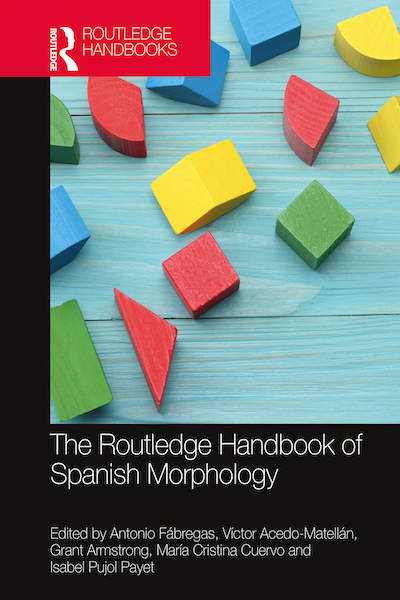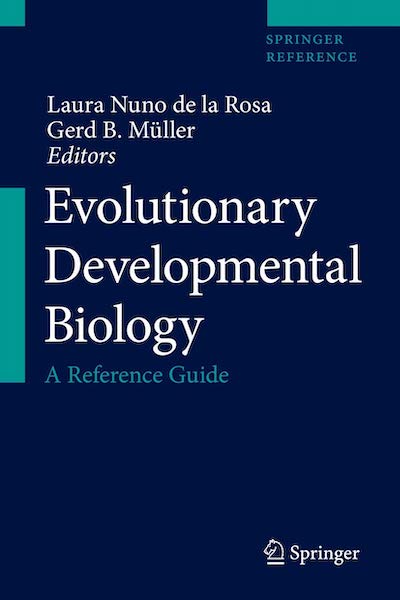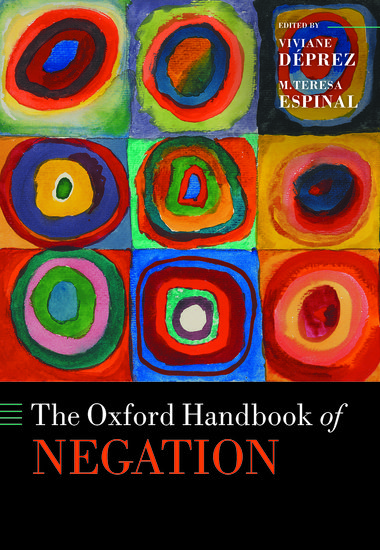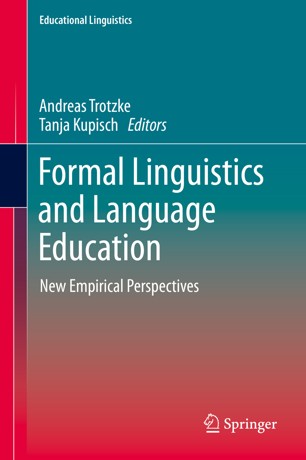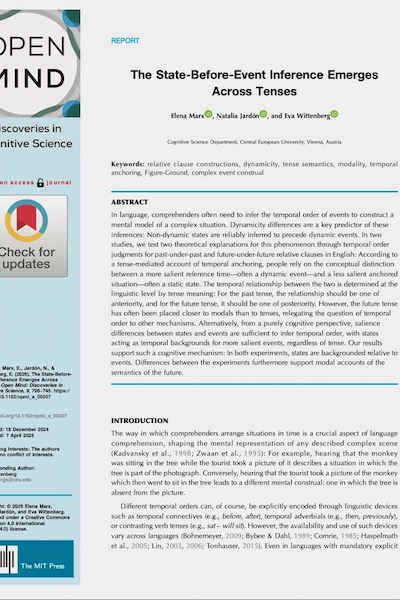
Autors:
Marx, Jardón & WittenbergTítol:
The State-Before-Event Inference Emerges Across TensesEditorial: Open Mind: Discoveries in Cognitive Science
Data de publicació: 23-06-2025
Pàgines: 19
Més informació
Text complet
In language, comprehenders often need to infer the temporal order of events to construct a mental model of a complex situation. Dynamicity differences are a key predictor of these inferences: Non-dynamic states are reliably inferred to precede dynamic events. In two studies, we test two theoretical explanations for this phenomenon through temporal order judgments for past-under-past and future-under-future relative clauses in English: According to a tense-mediated account of temporal anchoring, people rely on the conceptual distinction between a more salient reference time—often a dynamic event—and a less salient anchored situation—often a static state. The temporal relationship between the two is determined at the linguistic level by tense meaning: For the past tense, the relationship should be one of anteriority, and for the future tense, it should be one of posteriority. However, the future tense has often been placed closer to modals than to tenses, relegating the question of temporal order to other mechanisms. Alternatively, from a purely cognitive perspective, salience differences between states and events are sufficient to infer temporal order, with states acting as temporal backgrounds for more salient events, regardless of tense. Our results support such a cognitive mechanism: In both experiments, states are backgrounded relative to events. Differences between the experiments furthermore support modal accounts of the semantics of the future.

